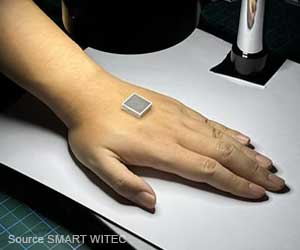Many experts working on disease control and prevention have seized upon it as a key material in creating diagnostic tools for the developing world.

"Paper is cheap and biodegradable and we do not need external pumps or syringes because paper can suck up a solution using capillary force" said Seokheun Choi from Binghamton University in the US.
The method should be especially useful to anyone working in remote areas with limited resources. Many experts working on disease control and prevention have seized upon it as a key material in creating diagnostic tools for the developing world.
While paper-based biosensors have shown promise in this area, the existing technology must be paired with hand-held devices for analysis.
Choi’s battery, which folds into the size of a matchbook, uses an inexpensive air-breathing cathode created with nickel sprayed onto one side of ordinary office paper.
The anode is screen printed with carbon paints, creating a hydrophilic zone with wax boundaries.
Source-IANS
 MEDINDIA
MEDINDIA




 Email
Email




